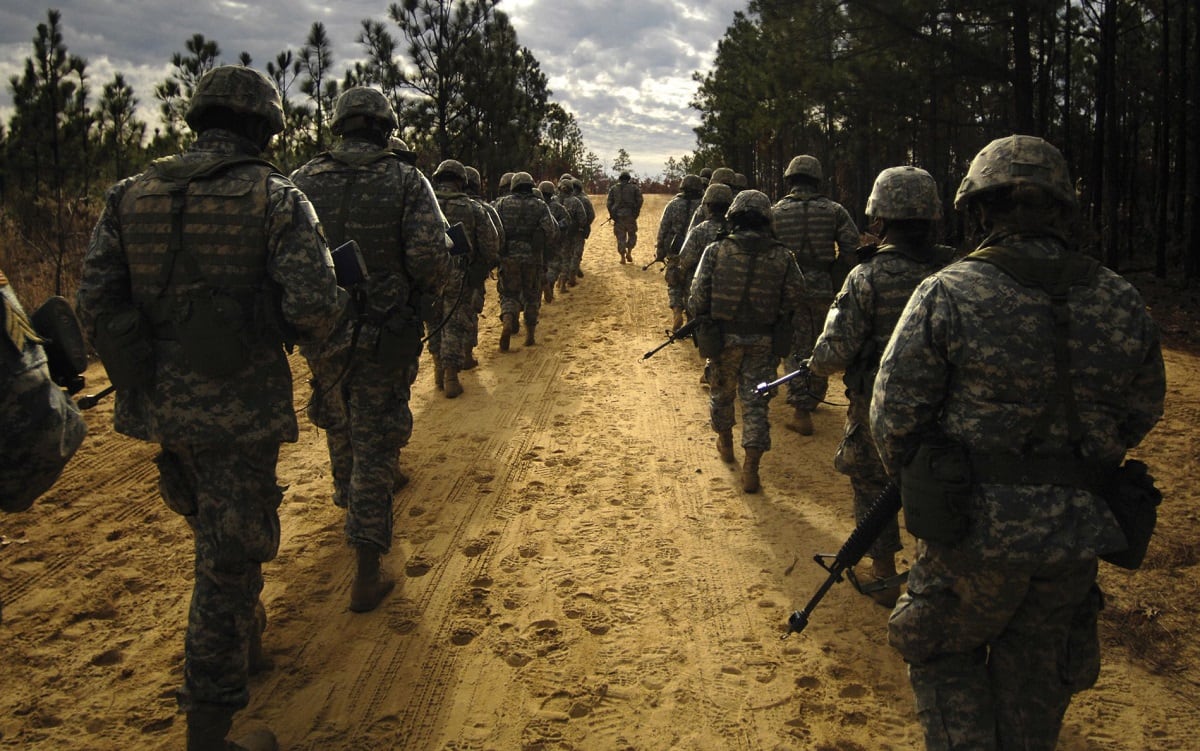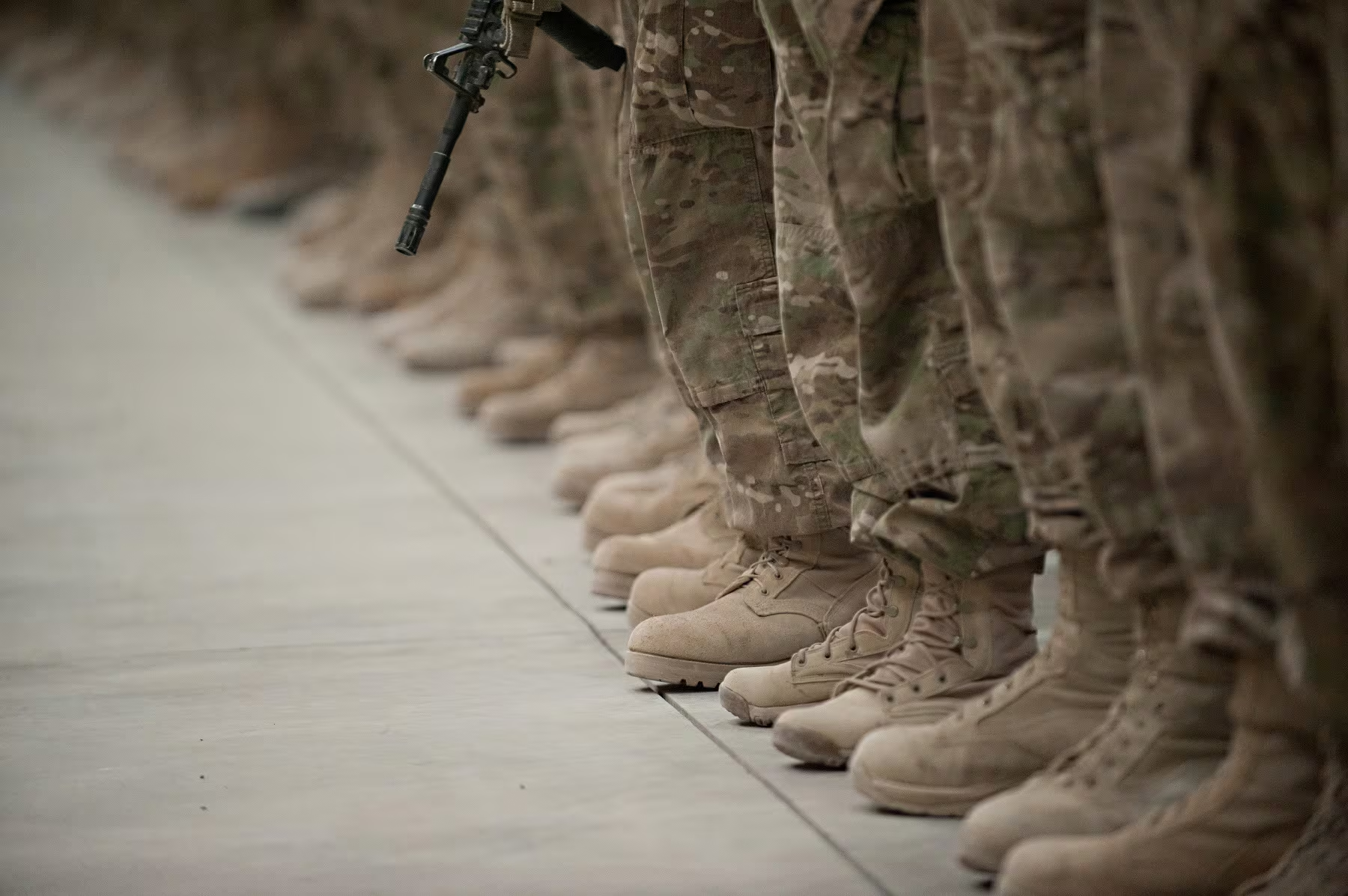The desire to go to war remains a key factor in recruiting and retention, according to senior enlisted leaders across the services.
The enlisted advisers to the Joint Chiefs of Staff were asked Wednesday at the Pentagon whether the 18-year war in Afghanistan was stemming the recruitment pool as the military attempts to grow its force.
The answer: When people enlist in the military, they want to go to war.
“Our soldiers, sailors, airmen and Marines are actually disappointed when we tell them we have a force cap and we’re not going to be able to bring all of them into theater,” Army Command Sgt. Maj. Timothy L. Metheny, the senior enlisted leader for U.S. Forces-Afghanistan, said Wednesday.
“We even look at how we can rotate different organizations in and out," Metheny added. "One, to remain fresh with our new troopers, but also to make sure everybody gets a rotation — gets that combat deployment that they’re seeking so badly.”
The retention rate in-theater stands at about 108 percent, according to Metheny, though he did not detail the exact methodology behind that number.
Regardless, the majority of people looking to enlist want the chance to do their job in real-life operations, whether that be missions in Afghanistan, Iraq, Syria or elsewhere, according to Army Command Sgt. Maj. John Wayne Troxell, the top enlisted adviser to the chairman of the Joint Chiefs.
“The risk of combat injury and death is with us,” Troxell said. “Even though there’s that inherent risk all the time, I think that’s accepted among the force.”
RELATED

The U.S. military has roughly 14,000 troops in Afghanistan. More than 2,000 have died there in what has become America’s longest war.
The current casualty rates for troops deployed to the Middle East is nowhere near the surge years of Iraq and Afghanistan. There have been 10 hostile deaths in Afghanistan this year and more than 50 wounded-in-action troops.
“About 65 percent of the Air Force joined after 9/11,” Chief Master Sgt. of the Air Force Kaleth Wright said during the panel discussion Wednesday.
“I don’t doubt that there are some airmen, some service members who from a maybe political standpoint have that mindset of ‘why are we here; we shouldn’t be here,’" Wright added. “But I would say the great majority of our airmen and our service members ... joined the military during a time of war because they wanted to contribute to defense of our nation."
On the National Guard side of the equation, the prospect of deployment is similarly enticing to Army and Air Force enlistees, according to Command Sgt. Maj. Christopher Kepner, senior enlisted adviser to the chief of the National Guard Bureau.
“The biggest question I get from our men and women today is not, ‘oh my gosh, will I have to go down range?’” he said. “It’s ‘deployments aren’t going to stop, are they sergeant major?'”
That sentiment was echoed by the incoming sergeant major of the Marine Corps.
“That’s why we all join," Sgt. Maj. Troy E. Black said. "At the end of the day, pick your service, but if I join the Marine Corps, it’s to go deploy, to go to combat if called to do so.”
“People want to serve, and the risk of it is just part of the deal," he added.
Kyle Rempfer was an editor and reporter who has covered combat operations, criminal cases, foreign military assistance and training accidents. Before entering journalism, Kyle served in U.S. Air Force Special Tactics and deployed in 2014 to Paktika Province, Afghanistan, and Baghdad, Iraq.





